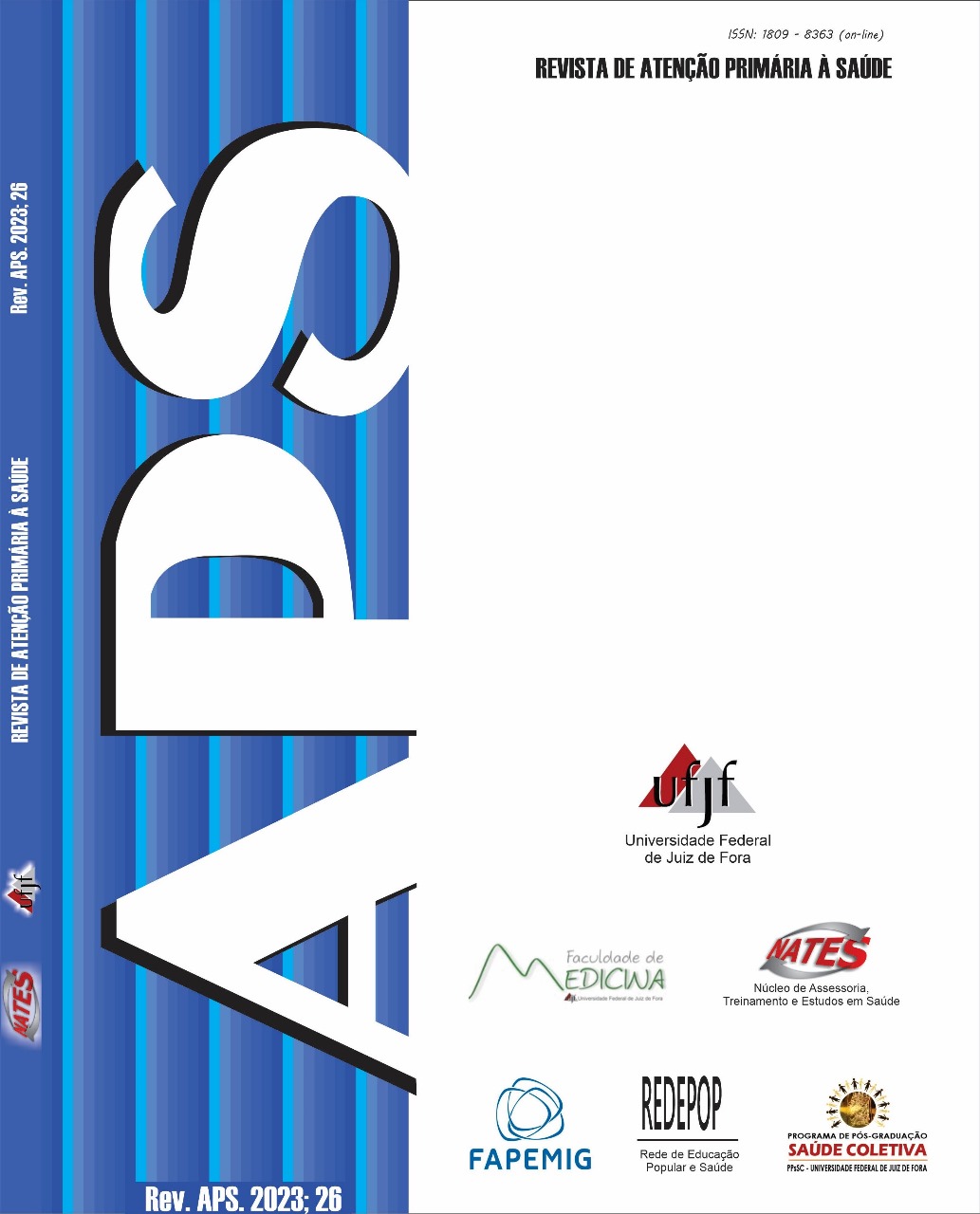Prevalência de fatores associados à autopercepção do comportamento sexual de risco em adultos e idosos
DOI:
https://doi.org/10.34019/1809-8363.2023.v26.36371Palabras clave:
Atenção Primária à Saúde, Infecções Sexualmente Transmissíveis, PreservativosResumen
Introdução: o comportamento sexual de risco pode ser definido como aquele que expõe o indivíduo à maior probabilidade de contrair uma infecção sexualmente transmissível. Objetivo: avaliar a autopercepção do comportamento sexual de risco e seus fatores associados. Metodologia: foi realizado um estudo transversal com 1.443 adultos e idosos, de ambos os sexos, usuários da Atenção Primária à Saúde (APS) de Passo Fundo – RS, dos quais foram analisadas características sociodemográficas e comportamentais. Resultados: a prevalência da autopercepção do comportamento sexual de risco foi de 15% (IC95 13-17). Da amostra, 8,8% relataram ter tido dois ou mais parceiros sexuais no último ano, enquanto 64,6% não fazem uso de preservativo durante a relação sexual. Maior probabilidade de autopercepção do comportamento sexual de risco foi identificado em indivíduos cuja escolaridade é de nível fundamental, sem cônjuge e que relataram multiplicidade de parceiros sexuais. Conclusão: apesar da considerável prevalência da autopercepção de comportamento sexual de risco, esta não esteve relacionada ao não uso do preservativo, reforçando a necessidade de constante educação sexual da população adulta e idosa usuária da APS, visando à redução da exposição às doenças sexualmente transmissíveis.











